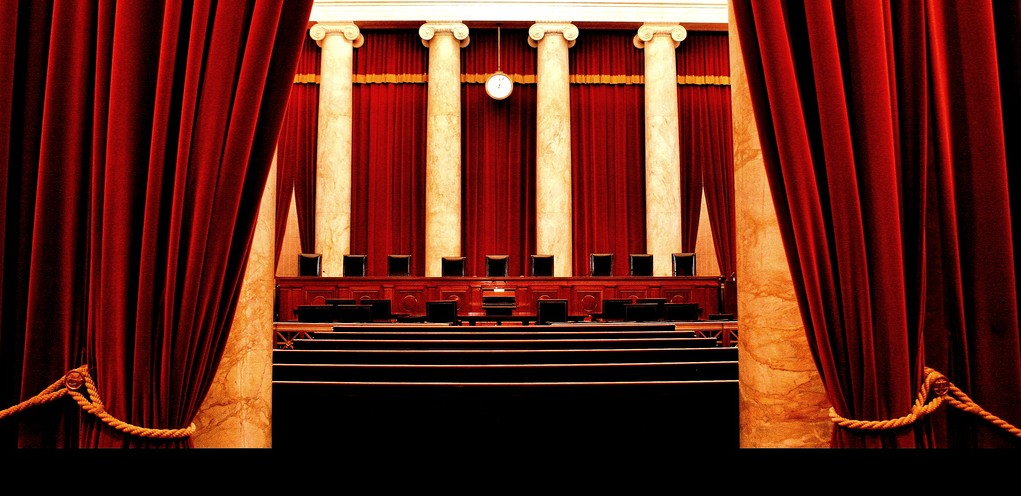Absent a genuine question of law, the Court lacks jurisdiction to review the Board of Immigration Appeals’ discretionary determination that the petitioner lacked good moral character and was due to be removed.
Dismissal on qualified immunity grounds was warranted where a father had not shown that the two social workers against whom he had filed the complaint violated clearly established federal rights during an investigation of alleged child abuse by interviewing a minor without her father’s consent and by threatening to remove the minor and a sibling from the father’s care.
Hemispherx Biopharma, Inc. v. Mid-South Capital, Inc.
Applying Georgia law: the statute of frauds does not bar enforcement of an unsigned letter agreement where one party has performed under the unsigned contract and the other party accepted that performance; genuine factual disputes preclude summary judgment; absent proof that a representation was made, that the representation was false, or that another party changed its behavior based upon reliance on that misrepresentation, a fraud claim fails as a matter of law; and intentional interference with business relationships requires a showing of malice or intent to injure.
ACLU of Florida v. Dixie County, Florida
In a case involving a constitutional challenge to a religious statue located outside the courthouse in Dixie County, a material conflict in the evidence precluded summary judgment.
The time during which plea negotiations are conducted is not automatically excludable from the Speedy Trial Act’s 30-day window for filing an information or indictment.
A subsequent immigration proceeding raising charges that could not have been brought in the first proceeding is not barred by res judicata; the Department of Homeland Security has broad regulatory authority to amend notices to appear to make new factual allegations and bring new charges.
Ponticelli v. Florida Department of Corrections
On habeas review: the Supreme Court of Florida reasonably applied clearly established federal law in determining that the prosecution did not violate his due process rights by allegedly suppressing evidence and in finding that trial counsel did not render deficient performance before and during that competency hearing.
Kuenzel v. Alabama Department of Corrections
Where petitioner’s claims are procedurally barred under state law and he has made no attempt to demonstrate good cause for or prejudice from his default, petitioner cannot obtain habeas relief without properly supporting a claim of actual innocence.
Seff v. Broward County, Florida
Under the Americans with Disabilities Act (ADA), an employer cannot require a medical examination or inquire of an employee as to the nature or severity of the disability, unless such inquiry or examination is job-related and consistent with business necessity. However, where an employee wellness program qualifies as a term of a bona fide benefit plan, it falls within the safe harbor provision of, and so will not violate, the ADA.
Pendergast v. Sprint Solutions, Inc.
Initially, the Court certified questions of Florida law related to arbitration and class action waiver provisions to the Florida Supreme Court. Subsequently, the U.S. Supreme Court issued its decision in AT&T Mobility LLC v. Concepcion, 131 S. Ct. 1740 (2011), holding that the Federal Arbitration Act (FAA) preempted California’s judicial rule on the unconscionability of class action waivers in consumer contracts. The 11th Circuit, therefore, affirmed the district court’s order compelling arbitration pursuant to the terms of Sprint’s service agreement, consistent with the FAA.
Georgia Latino Alliance for Human Rights v. Governor of Georgia
Affirming the preliminary injunction with respect to section 7 of Georgia’s immigration law (criminalizing the transportation or concealment of an illegal alien or the encouragement of an illegal alien to enter the state of Georgia) based upon a likelihood of success on the merits due to the section’s inconsistency with the federal immigration scheme; reversing the preliminary injunction as to the pre-enforcement challenge to section 8 (authorizing officers to investigate immigration status of individuals who cannot produce adequate identification to prove citizenship, provided probable cause exists that the individual has committed a crime), because the Supreme Court upheld a similar provision in Arizona.
